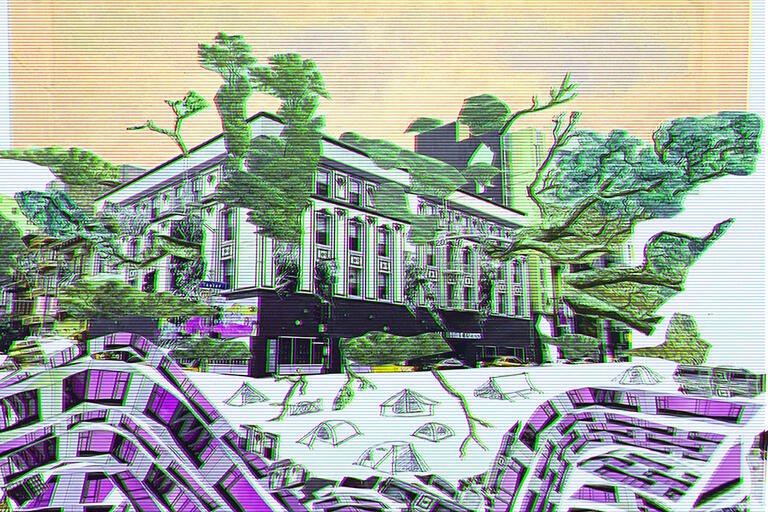CONTACT: chandra_laborde@berkeley.edu
Transecological Imaginations is conceptualized as a working group that bridges spatial theory and transformative practices to imagine equitable futures. Transecological ethics is an embodied relation to place which is attuned to histories of difference in all its forms, especially the ones that challenge binaries such as nature/culture, female/male, etc. This framework aims to resist a planetary future centered on anthropic exceptionalism that hierarchizises life according to colonial, racial, and gendered forms of violence and perpetuates precarious life. We attempt to conjure a postanthropic vision to build a future where justice dwells.
We will focus on a building at the intersection of Turk and Taylor streets, in the Tenderloin neighborhood, San Francisco. This crossroads was the site of the Compton’s Cafeteria Riot of 1966, a queer grassroots uprising against police violence. Today, the three-story building is operated as a “halfway house” by GEO Group, a for-profit prison corporation. Our goal is to liberate the landmark building and re-envision a just future that upholds the site’s legacy of resistance.


